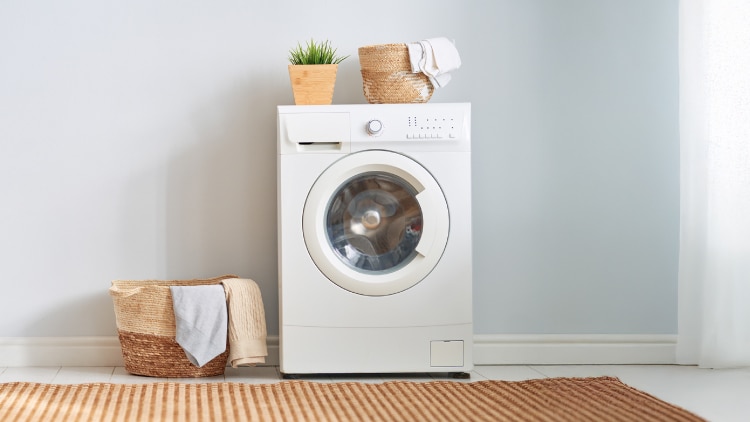

When should a washer be replaced? Maintenance strategies to extend the lifespan of washer
Washers are essential appliances in modern households, silently ensuring our clothes are clean almost every day. However, even the most durable machines have their lifespan and limits. Have you ever thought about how long your washer has been in use? Is it time for a replacement? By paying attention to small details in daily use and adopting simple maintenance habits, you can significantly extend the lifespan of your washer and avoid unexpected breakdowns. This article will help you understand when to replace your washer and provide some practical and easy maintenance tips to save you money and give you peace of mind!
Average Lifespan of Washer
The lifespan of washers varies by brand and model, but generally, the average lifespan is 10 to 12 years. According to Japan's 2022 "Consumer Trends Survey," the average usage duration for washers in households with two or more people is about 10.8 years. If your machine exceeds this age, components may start to age or performance may decline, indicating it might be time to consider a replacement. Additionally, the frequency and manner of use can affect the lifespan; frequent or long continuous operation can accelerate wear and tear.
Five Signs You Need to Replace Your Washer
1. Unusual Noises During Operation
If your washer makes rumbling, banging, or other unusual sounds while running, it may indicate that the motor, belt, or internal components are malfunctioning. These noises are a signal that your washer needs attention and should be checked or replaced.
2. Frequent Error Codes
If the washer display often shows error messages, it likely indicates a malfunction in the internal system, such as drainage failure or sensor issues. If resetting the machine doesn't work, it may require professional repair or replacement.
3. Strange Odors
If there are persistent moldy or other unpleasant odors even after cleaning the drum, it may be due to the accumulation of dirt or mold inside. This not only affects laundry cleanliness but may also pose health risks.
4. Poor Spin Drying Performance
If clothes remain very wet after washing, it could indicate a problem with the spin motor or a blockage in the drainage system. If this situation cannot be improved, consider replacing the machine.
5. Overheating Power Cord
If you notice that the plug or cord becomes unusually hot, it may be a sign of aging circuitry or poor connections, which could pose safety risks over time.
Maintenance Tips to Extend the Lifespan of Your Washer
1. Avoid Overloading
Each wash should avoid filling the drum completely; it is generally recommended to fill it to about 70% capacity to allow components to operate efficiently and reduce strain.
2. Use Detergent in Moderation
Overusing detergent can leave residues inside, leading to buildup that affects machine operation and washing results. Please follow the recommended dosage on the product.
3. Regularly Clean the Filter
The filter can easily accumulate lint, hair, and other impurities. If not cleaned regularly, it may cause drainage issues or pump damage. It is recommended to clean it every two weeks.
4. Keep the Interior Dry After Use
After each wash, open the door to ventilate and wipe down the drum and door seals to prevent mold growth.
5. Perform Deep Cleaning Regularly
Every 2 to 3 months, use a specialized washer cleaner for deep cleaning to effectively remove buildup and bacteria, keeping the machine running smoothly.
6. Avoid Long Continuous Operations
Continuous operation can cause overheating of the motor and control circuits. It is recommended to allow the machine to rest for at least 30 minutes after each wash to protect electronic components.
7. Check Power and Water Connections Regularly
Ensure plugs are secure and there are no leaks in the hoses. Replace any aging or damaged components immediately.
Interesting Facts About Washer Maintenance
1. Advantages of Inverter Washers
Inverter motors can automatically adjust the spin speed based on the weight of the clothes, reducing energy waste, lowering noise, and extending the lifespan of the washer.
2. Water Efficiency Labels
When purchasing a washer, pay attention to the government’s water efficiency labels—Level 1 represents the most water-efficient option, helping save on water bills while indicating better machine performance.
3. Utilize Quick Wash Features
The quick wash function can reduce both the time and water used for each wash, making it more efficient for lightly soiled clothes.
4. Pre-Treating Clothes Before Washing
Turning clothes inside out, zipping zippers, and clearing pockets of foreign objects can reduce wear during the washing process and extend the life of the drum.
Washers are indispensable appliances in the home. Proper use and regular maintenance not only extend their lifespan but also help prevent sudden malfunctions and high repair costs. If you notice multiple signs of abnormalities, it is advisable to evaluate whether a replacement is necessary to ensure convenience and safety in your home life.
